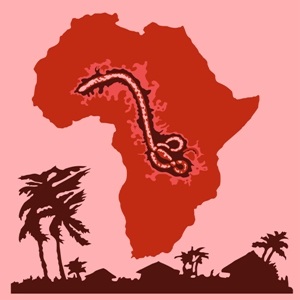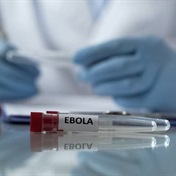
Medical charities say they have started trials of untested drug treatments on Ebola patients in Liberia and Guinea for the first time in an effort to control an epidemic that has killed more than 8,000 people in the region.
Effective in laboratory tests
The World Health Organisation gave its approval for the use of experimental drugs on West African Ebola patients in August, but it has taken months to organise trials and get limited supplies of the drugs to the affected countries.
Medecins Sans Frontieres said on Tuesday it began giving brincidofovir, developed by North Carolina-based Chimerix Inc, to consenting confirmed Ebola patients this month at the ELWA 3 centre in Monrovia, the capital of Liberia.
Dr. Jake Dunning from Oxford University, which is leading the trials, said the antiviral drug has been effective in laboratory tests against Ebola-infected cells.
Read: Can the blood of Ebola survivors create a cure?
"What we don't know yet is if it will be effective against Ebola in humans. This is why we must do a trial," he said.
In Guinea, where the haemorrhagic fever first emerged deep in the jungle more than a year ago, trials of an experimental Japanese drug have begun in two Ebola treatment centres – Gueckedou and Nzerekore.
The drug Avigan, or favipiravir – developed by Toyama Chemical, a subsidiary of Japan's Fujifilm – was created as a flu treatment. It was administered to a Cuban doctor in a Swiss hospital in December after he contracted the virus in Sierra Leone. He survived.
Pushing death rates down
Johnson & Johnson announced the start of clinical tests with a third experimental vaccine earlier on Tuesday .
Volunteers from Britain and Switzerland have already been given trial Ebola vaccines intended to immunise them against the virus, while experimental treatments have sometimes been offered to Ebola-stricken healthcare workers.
Read: Ebola survivors face critical problems
Isabelle Defourny, with medical charity the Alliance for International Medical Action operating the Nzerekore centre, said she hoped the treatment would help push death rates down from their current level around 60 percent.
"The high mortality rate is tragic for the populations and makes it even harder to contain the epidemic because the patients, in the absence of effective treatments, are understandably reticent about coming to centres," she said.
Ebola, thought to have jumped to humans via an infected fruit bat last year, causes vomiting and diarrhoea as well as bleeding from the eyes and ears in the late stages.
The first results for brincidofovir are expected in February and for favipiravir in late March. It was not immediately clear when drug trials would begin in Sierra Leone, the country with the highest number of cases.
Read more:
J&J starts clinical trials of Ebola vaccine
Laboratory worker exposed to Ebola showing no symptoms
Ebola appears to be slowing in Liberia




 Publications
Publications
 Partners
Partners











